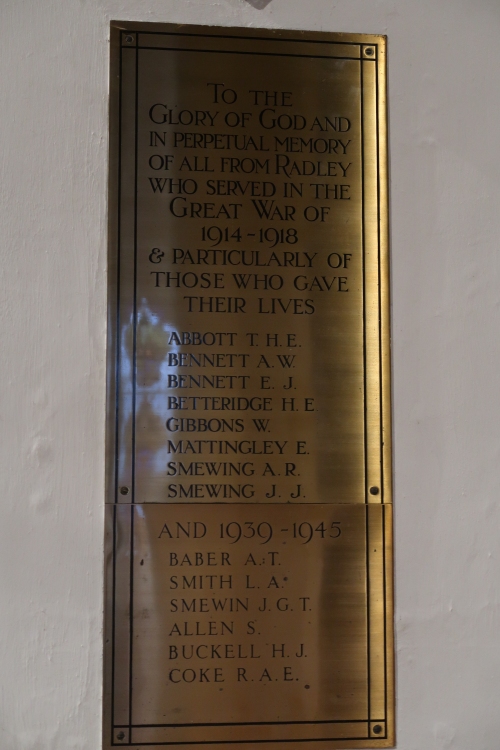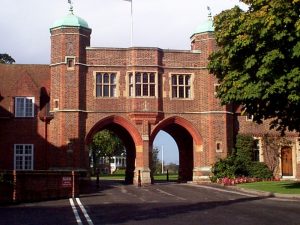The talk on 8 January was not as advertised, the intended speaker being stranded on a narrow boat on the flooded Thames! The Club was very grateful to Marie-Louise Kerr (Curator without a Museum) for coming at short notice to talk about Famous Local Folk – Blue Plaques of South Oxfordshire.
You will find Blue Plaques commemorating people who made an impact locally, nationally or internationally on buildings around the country. Marie-Louise talked about just a few of the people with Blue Plaques in south Oxfordshire – five men and the only local lady as yet with one.
- Judge Sir William Blackstone (1723-1780) at Castle Priory House, Wallingford: judge, lawyer and politician who wrote the influential book, The Commentaries on the Laws of England, and was Recorder of Wallingford from 1749 to 1770.
- Dame Agatha Christie (1890-1978) at Winterbrook House, near Wallingford: world-famous author of detective stories, other fiction and plays (e.g. The Mousetrap) who lived with her second husband, the archaeologist Sir Max Mallowan, at Winterbrook from 1934 to 1976.
- Jehro Tull (1674-1741) at 19A The Street, Crowmarsh Gifford: invented a horse-drawn seed drill (described in An Essay on the Principles of Tillage and Cultivation) that helped bring about an ‘agricultural revolution’ in England, and who lived at Howberry Farm from 1700 to 1710.
- Samuel Edgar Saunders (1857-1933) at his former premises by the bridge in Goring: boat-builder and engineer from Streatley who expanded the family business first at Goring and then at South Stoke, before moving to the Isle of Wight where he set up a marine engineering company.
- Kenneth Grahame (1859-1932) at Boham’s Farm, Blewbury: author of the classic children’s book, The Wind in the Willows, based on bedtime stories told to his only child Alistair (‘Letters to Mouse’); the family lived in Blewbury from 1910 until 1920, later settling in Pangbourne.
- Cecil Kimber (1885-1945) at The Boundary House pub, Abingdon: motor car designer who worked for William Morris and created the MG marque for sports cars fitted on a modified Morris chassis; he lived with his family at The Boundary House from 1933 to 1938.
There are also unofficial blue plaques such as the one on a wall in Thame Road in Warborough to Theo King (1919-1987), which bears the inscription ‘postmaster, churchwarden, scouter, friend of all in the village, lived & worked here’.
Note: Blue Plaques in London today are erected by English Heritage. Local authorities and other organisations deal with similar plaques around the country. In Oxfordshire, this is the Oxfordshire Blue Plaques Board.

